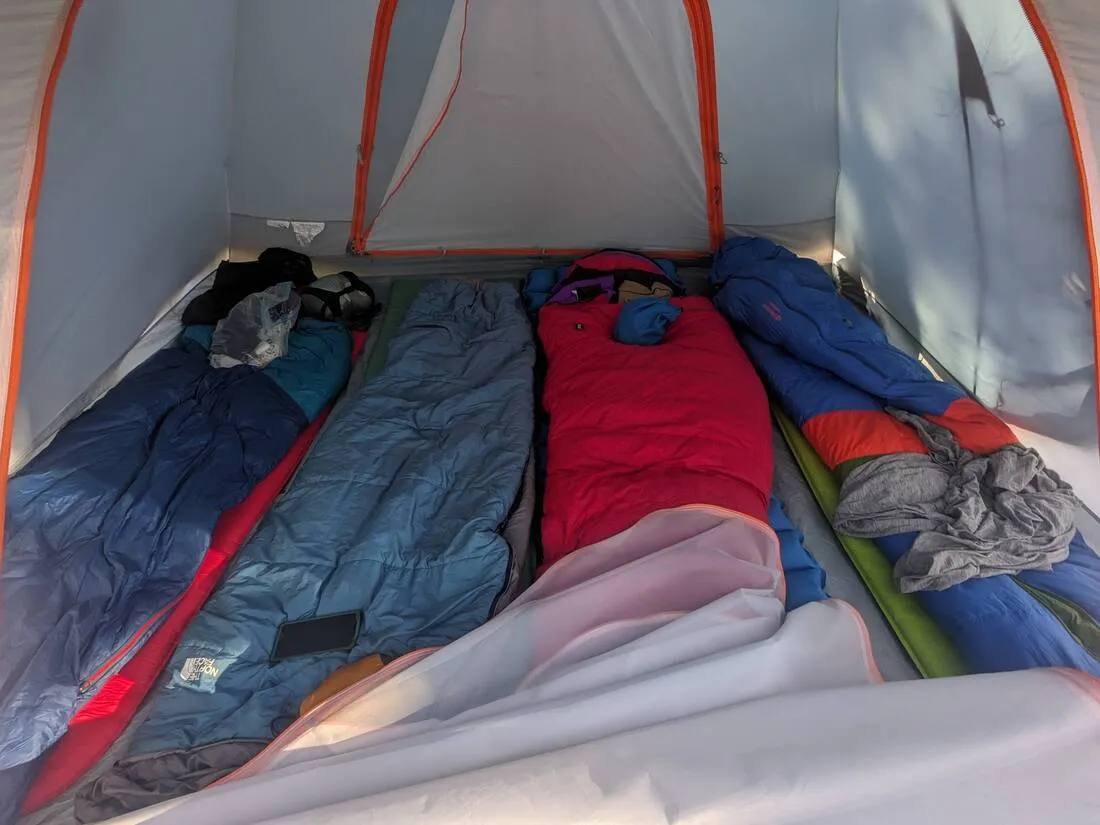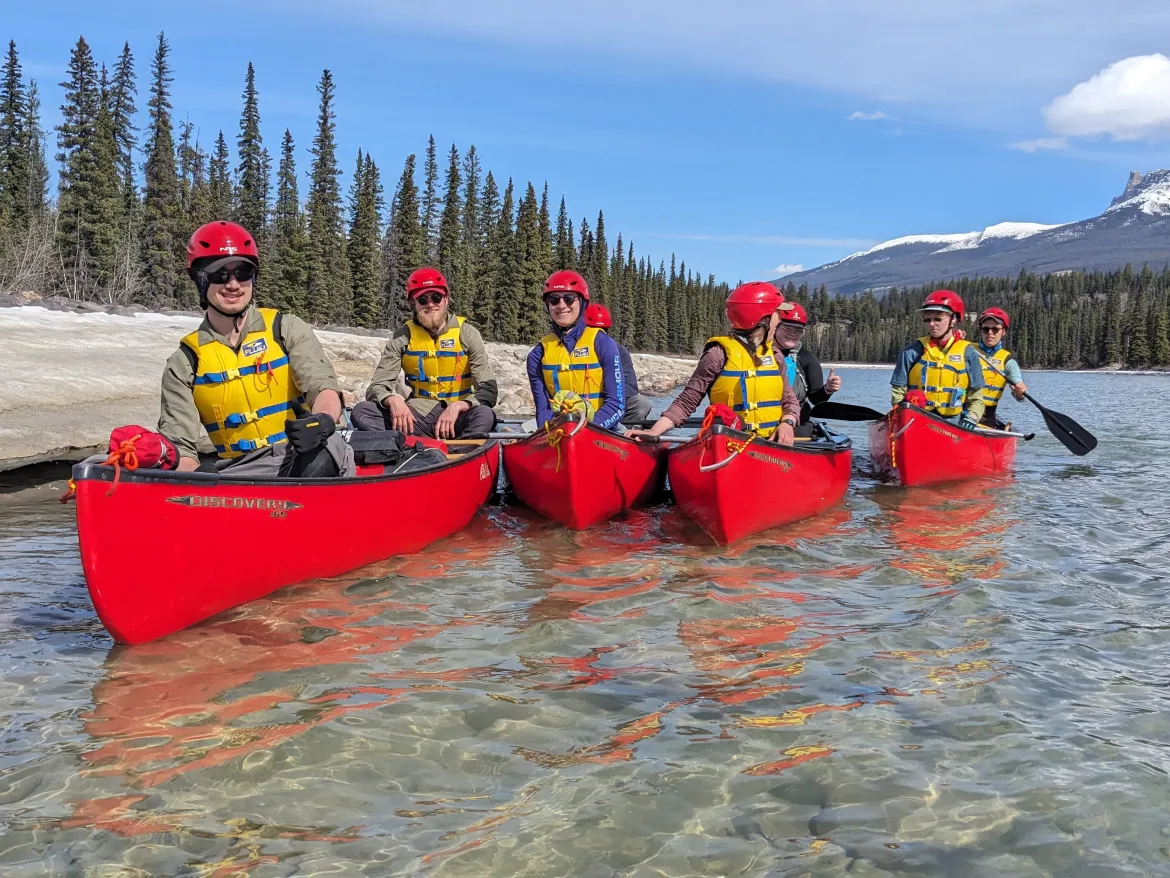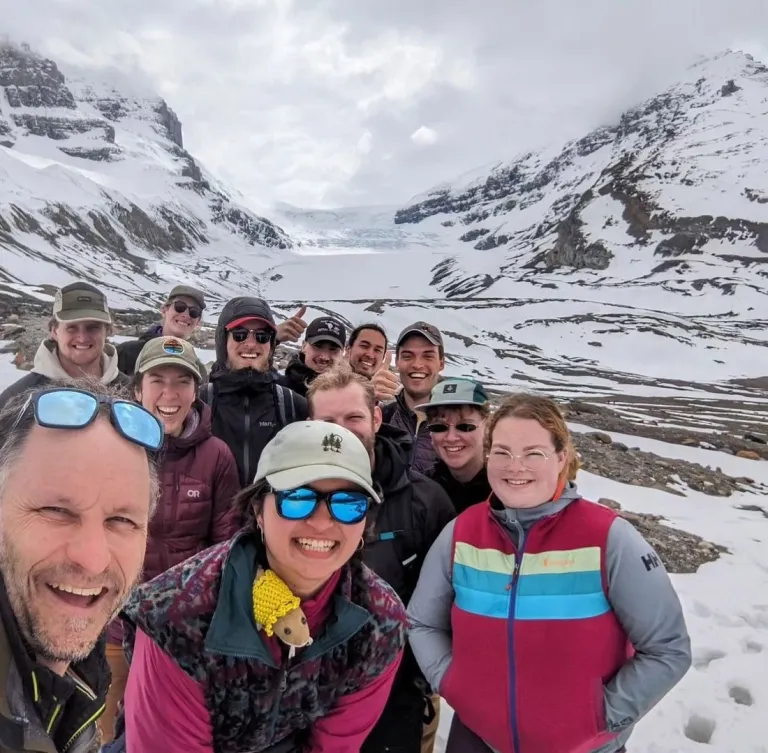Outdoor Activities
Nordic, downhill, backcountry skiing, snowboarding, mountain biking, hiking, canoeing, kayaking, climbing, mountaineering…. opportunities abound, and we have close ties and partnerships with various clubs. The UNBC Outdoors Club is very active, as is the Prince George Backcountry Recreation Society, and the Caledonia Ramblers. The world-class Caledonia Nordic Ski Club provides the Nordic Sport Leadership Awards for UNBC students, and support our Varsity Cross-Country Ski/Biathlon Club as well as managing a wonderful year-round recreation site. OverHang is the local climbing gym. Locally owned and operated hills for skiing and snowboarding include The Hart, Powder King, Murray Ridge, and Troll. There’s the Northern BC Freestyle Club, Canoe & Kayak Club, PG Naturalists Club, PG Search and Rescue, PG Cycling Club, Alpine club of Canada- PG and many more. We’ve been close partners with all these groups for years.
Field Skills
Many/most ORTM classes involve some field activities; here’s a summary of field-based or practical work in ORTM courses.

Outdoor Equipment
We maintain an outdoor equipment lab to enable field teaching in our courses. Students can borrow equipment at no additional cost for use in our courses and field excursions. We supply backpacks, sleeping bags and mats, backcountry stoves and pots, canoes, canoe packs etc. Students can also bring and use their own outdoor equipment for classes (in most cases), but gear can be expensive and ORTM wants to maximize student participation. ORTM equipment is not presently available for personal use or rent.
Teaching & Research Forests and Facilities
In 2024 UNBC designated a large tract of natural land on campus as its Teaching Forest Reserve (TFR). Protected from residential or campus development, the land provides a lab for field-based teaching, research, and learning, as well as student recreation and wellbeing. ORTM will play a central role in monitoring and managing the TFR, and our classes and students use it regularly for labs. The land is contiguous with Forests for The World and the Cranbrook Hill Greenway. UNBC also has two research forests (Aleza Lake and John Prince) and the Quesnel River Research Centre that we regularly use, among its sites and facilities.
Internships
ORTM offers credit for Internships on an individual basis, initiated by the student in partnership with an employer/organization and a willing ORTM Faculty member. To do this, we use our course ORTM 440 Internship. Click here for more information.
National Outdoor Leadership School (NOLS)
ORTM partners with NOLS to offer full academic credit to students completing NOLS studies. Arrangements must be made in advance of taking the NOLS course; we cannot arrange credit after completion. Contact Philip.Mullins@unbc.ca.
Certifications & Professional Designations
Professional competencies and certifications are often integrated into ORTM courses, and/or we help arrange and communicate their local delivery. These have included Adventure Smart, Leave No Trace, Project Wild, Wilderness First Aid, OCC Field Leader, and diverse outdoor travel skills (such a recreational canoe levels). Throughout their studies, students should take opportunities to develop their professional competencies, volunteering, and certifications aligned with their career goals. We can help advise.
Info for WCR students on becoming a Registered Professional Biologist (RPBio)

Field Schools
Experiential learning is important. Many ORTM courses have field trips, but students in both degrees require the extended ORTM 333-3 Field School. We also offer ORTM 433-1-6 Field School II, which is optional. Field School courses are open to non-majors.
ORTM 333-3 gets students into the field for an extended period to allow (a) skill building and development, and (b) critical thinking relating theory and practice around complex place-based issues. The course creates strong bonds of community, shared experience, and mentorship among ORTM students and faculty. The focus in ORTM 333 varies year-to-year depending on faculty and student interests, and available opportunities in a location. The instructor guides students before, during, and after the field experience to incorporate and link academic and practical skills and knowledge.
A few points about our field schools:
- They are almost entirely run in the May-August semester, most often in spring (end of April beginning of May) or end of summer (August), which links well to the regular classroom semesters.
- The field location will generally change from year to year. If it’s on Haida Gwaii one year, it may be in Jasper the next, and Mexico the year after.
- There is a course fee above and beyond tuition that covers associated costs such as transportation, accommodation, and activities. We keep this fee as low as possible, but it’s usually $1500 - $2000. Fees change every year, being dependent on location and activities.
- ORTM 333-3 class is a 3-credit field school; at times may be offered in combination with other ORTM courses (e.g., ORTM 332, ORTM 433, ORTM 498) or UNBC courses (e.g. GEOG, ANTH, NORS) for additional credit.
We recognize that because of costs, location, or timing that a particular year’s Field School course may not suit the ability, interest, or desire of all students. We STRONGLY encourage students to take ORTM 333-3 in the summer semester of their 2nd or 3rd year, but if neither year is feasible, we have some simple rules for substitution:
- You as the student need to take responsibility for getting your substitution approved, and in plenty of time. At the very least you need to take care of this in the January semester of the year you intend to graduate.
- All discussions regarding substitution need to be initiated with the ORTM curriculum committee chair, who will discuss with other ORTM faculty, other departments if needed, and then with the ESM Department Chair who must approve any substitution.
- The substitute course must be taught in the field - almost completely, but some classroom time is acceptable when preparing for an extended trip. A course simply comprising many field trips is not an appropriate substitution.
- The length of a substitute course must be at least 10 days in the field, which is standard for ORTM 333 and other field schools at UNBC, and which equates to 3 credit hours.
- The substitute course must be from an accredited academic institution - university or college - so that academic credit exists and can be transferred to UNBC.
- The substitute course must focus on one of the areas of ORTM including: outdoor recreation, tourism, parks and conservation, or outdoor education, etc. There is leeway, but the student must make an appropriate case.
- Approval for substitution must be gained in advance on a case-by-case basis, and the student will need to make all arrangements with the desired program and/or institution.
Personal excursions or adventures—while a valuable part of your own development and enjoyment—do not meet these tests.
